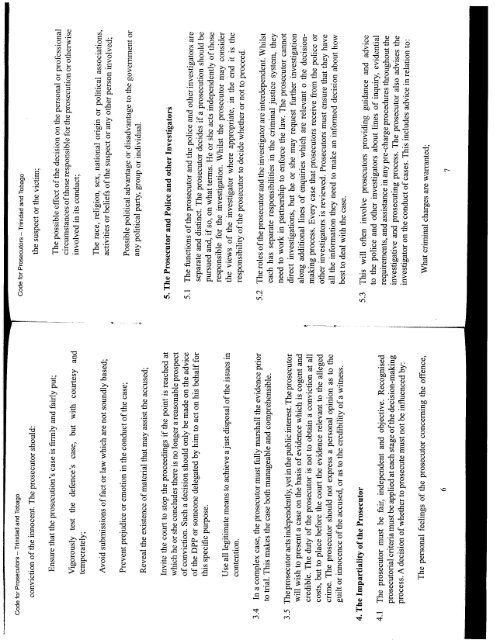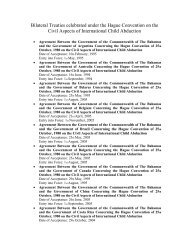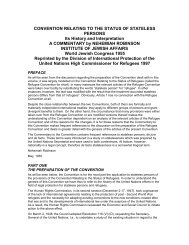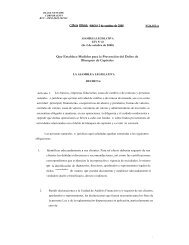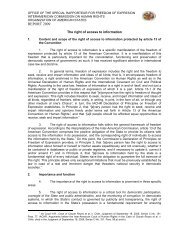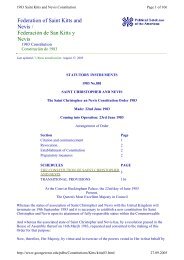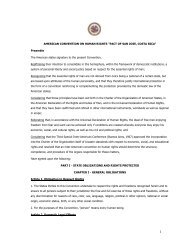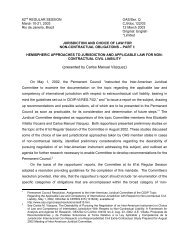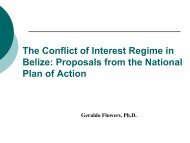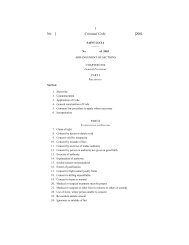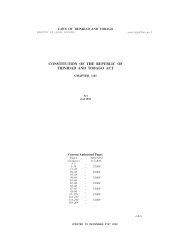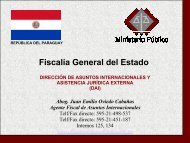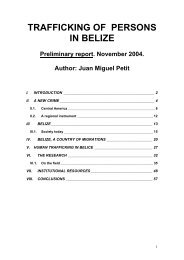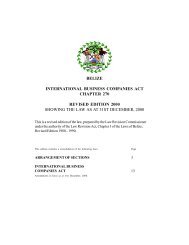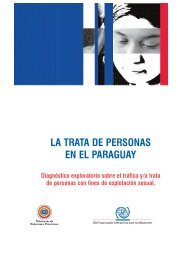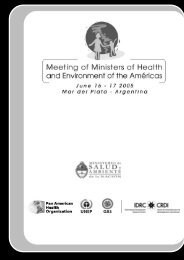Code for Prosecutors - OAS
Code for Prosecutors - OAS
Code for Prosecutors - OAS
Create successful ePaper yourself
Turn your PDF publications into a flip-book with our unique Google optimized e-Paper software.
<strong>Code</strong> <strong>for</strong> <strong>Prosecutors</strong> - Trinidad and Tobago<br />
conviction of the innocent. The prosecutor should:<br />
Ensure that the prosecution's case is firmly and fairly put;<br />
Vigorously test the defence's case, but with courtesy and<br />
temperately;<br />
Avoid submissions of fact or law which are not soundly based;<br />
Prevent prejudice or emotion in the conduct of the case;<br />
Reveal the existence of material that may assist the accused;<br />
Invite the court to stop the proceedings if the point is reached at<br />
which he or she concludes there is no longer a reasonable prospect<br />
of conviction. Such a decision should only be made on the advice<br />
of the DPP or someone delegated by him to act on his behalf <strong>for</strong><br />
this specific purpose.<br />
Use all legitimate means to achieve a just disposal of the issues in<br />
contention.<br />
3.4 In a complex case, the prosecutor must fully marshall the evidence prior<br />
to trial. This makes the case both manageable and comprehensible.<br />
3.5 The prosecutor acts independently, yet in the public interest. The prosecutor<br />
will wish to present a case on the basis of evidence which is cogent and<br />
credible. The duty of the prosecutor is not to obtain a conviction at all<br />
costs, but to place be<strong>for</strong>e the court the evidence relevant to the alleged<br />
crime. The prosecutor should not express a personal opinion as to the<br />
guilt or innocence of the accused, or as to the credibility of a witness.<br />
4. The Impartiality of the Prosecutor<br />
4.1 The prosecutor must be fair, independent and objective. Recognised<br />
prosecutorial criteria must be applied at each stage of the decision-making<br />
process. A decision of whether to prosecute must not be influenced by:<br />
The personal feelings of the prosecutor concerning the offence,<br />
6<br />
<strong>Code</strong> <strong>for</strong> <strong>Prosecutors</strong> - Trinidad and Tobago<br />
the suspect or the victim;<br />
The possible effect of the decision on the personal or professional<br />
circumstances of those responsible <strong>for</strong> the prosecution or otherwise<br />
involved in its conduct;<br />
The race, religion, sex, national origin or political associations,<br />
activities or beliefs of the suspect or any other person involved;<br />
Possible political advantage or disadvantage to the government or<br />
any political party, group or individual.<br />
5. The Prosecutor and Police and other Investigators<br />
5.1 The functions of the prosecutor and the police and other investigators are<br />
separate and distinct. The prosecutor decides if a prosecution should be<br />
pursued and, if so, on what terms. He or she acts independently of those<br />
responsible <strong>for</strong> the investigation. Whilst the prosecutor may consider<br />
the views of the investigator where appropriate, in the end it is the<br />
responsibility of the prosecutor to decide whether or not to proceed.<br />
5.2 The roles of the prosecutor and the investigator are interdependent. Whilst<br />
each has separate responsibilities in the criminal justice system, they<br />
need to work in partnership to en<strong>for</strong>ce the law. The prosecutor cannot<br />
direct investigations, but he or she may request further investigation<br />
along additional lines of enquiries which are relevant o the decisionmaking<br />
process. Every case that prosecutors receive from the police or<br />
other investigators is reviewed. <strong>Prosecutors</strong> must ensure that they have<br />
all the in<strong>for</strong>mation they need to make an in<strong>for</strong>med decision about how<br />
best to deal with the case.<br />
5.3 This will often involve prosecutors providing guidance and advice<br />
to the police and other investigators about lines of inquiry, evidential<br />
requirements, and assistance in any pre-charge procedures throughout the<br />
investigative and prosecuting process. The prosecutor also advises the<br />
investigator on the conduct of cases. This includes advice in relation to:<br />
What criminal charges are warranted;


